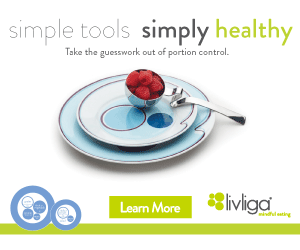I am sharing an article written by a contributing writer, Jillian M, Medicine Advocate at the Mesothelioma Cancer Alliance. With so many friends and family members who have faced cancer, including my mom, it is important to be reminded of the significance of healthy eating, even when we may not feel like it, to help our bodies sustain treatments as well as recover from illness. After reading the article, if you have any questions, please feel free to ask them and Jillian can help direct us to the answers. Thanks. Here is what she wrote:
Eating a healthy meal is the furthest thing from the minds of many cancer patients who simply want to survive treatments. Chemotherapy, radiation and other forms of treatment can sap patients’ strength and appetite. However, getting adequate amounts of nutritious foods is very important during treatment.
Your body needs as much support as possible, whether you need nutrition for mesothelioma cancer treatment or other forms. Various cancer treatments can put a lot of strain on the body, making it harder for you to think about food. The body works to fight the cancer and repair damaged cells from cancer treatment side effects.
Typically, your primary focus is on receiving a good prognosis for the cancer going into remission. Being concerned with vitamins, minerals and other essential nutrients can seem like an additional worry you want to avoid.
Some cancer patients might consider taking vitamin supplements, especially if they are having problems digesting food. However, some health experts suggest taking a multivitamin daily if this aligns with doctor recommendations. While vitamin supplements are not a cure-all for getting good nutrition, they could help on some level.
For most cancer patients, a healthy diet includes drinking the right amount of fluids and eating foods with important nutrients. Many of these include protein, carbohydrates, minerals and vitamins. When the body is deprived of nutrients, malnourishment or malnutrition may occur.
Identifying nutrition deficiencies early might help to improve your chances of recovery. With the help of a nutrition support team, any problems can be identified and corrected early. Often, the team of nutrition specialists may include a registered dietitian, your physician, nurse and social worker. Early screening and assessment can help to identify problems that might interfere with your body’s response to certain forms of cancer treatment.
Generally, there are three primary goals that the nutrition support team will work with you to reach. Good nutrition can restore missing nutrients that the body needs to perform at optimal levels.
The support team also wants to ensure you maintain healthy nutrition levels while undergoing cancer treatment. Getting adequate nutrition can help to restore missing nutrients to prevent other health problems. This includes bone and muscle loss that can have an adverse affect to how well your body responds to treatment.
Another goal for proper nutrition is to decrease common side effects from various cancer treatments. When you are eating the right amounts of nutrients, your energy and strength can improve. The immune system is better prepared to fight an infection in your body.
Good nutrition from eating the right foods might also help to prevent problems that might not otherwise occur. Good nutrition is essential if your cancer is in remission or completely cured.
In general, nutrition refers to the process of how the body uses food to keep it healthy, strong and to replace necessary tissue. Even for people who were not diagnosed with cancer, good nutrition is essential for maintaining good health. Eating the right types of foods during each stage of your cancer treatment can help. You can feel better and stay strong to endure treatments. For more information regarding developing and maintaining a healthy diet while dealing with cancer please visit- The American Cancer Society.
Subscribe to:
Post Comments (Atom)










No comments